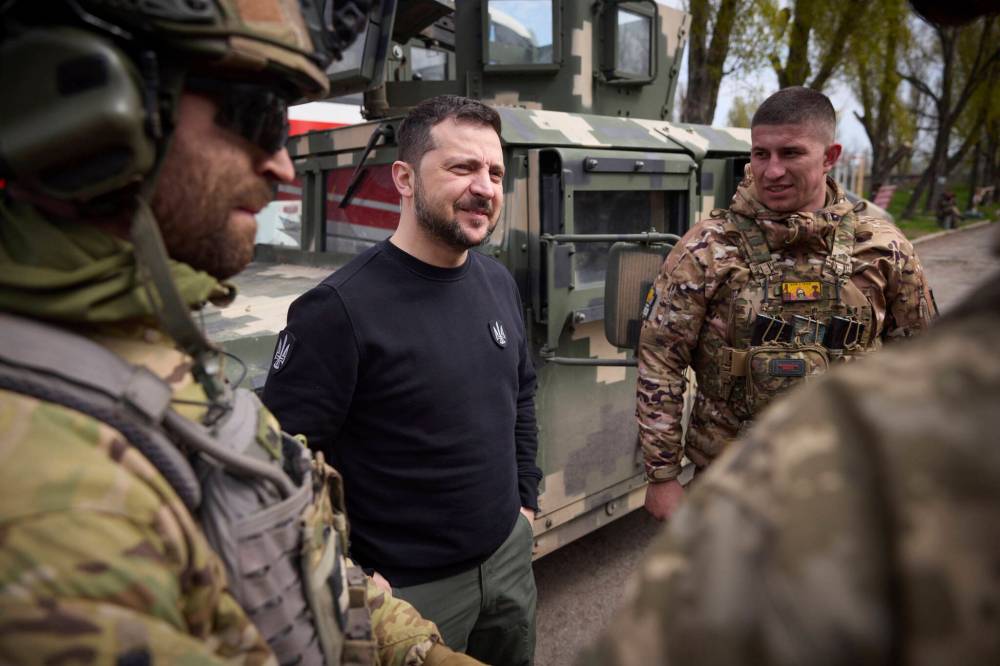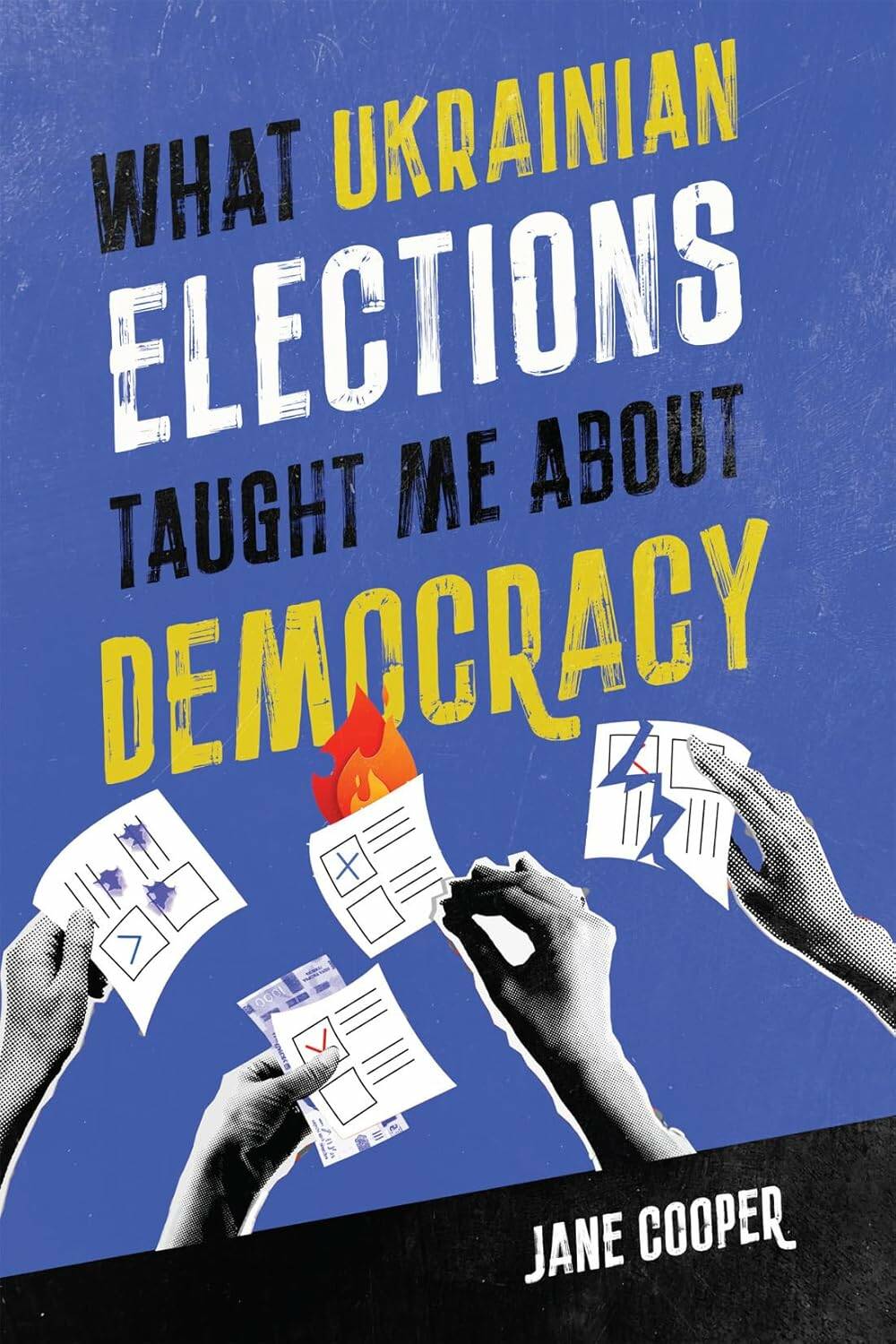Democracy on the ballot
Ukraine elections offer insight on the inherently fragile nature of the political process
Advertisement
Read this article for free:
or
Already have an account? Log in here »
To continue reading, please subscribe:
Monthly Digital Subscription
$0 for the first 4 weeks*
- Enjoy unlimited reading on winnipegfreepress.com
- Read the E-Edition, our digital replica newspaper
- Access News Break, our award-winning app
- Play interactive puzzles
*No charge for 4 weeks then price increases to the regular rate of $19.00 plus GST every four weeks. Offer available to new and qualified returning subscribers only. Cancel any time.
Monthly Digital Subscription
$4.75/week*
- Enjoy unlimited reading on winnipegfreepress.com
- Read the E-Edition, our digital replica newspaper
- Access News Break, our award-winning app
- Play interactive puzzles
*Billed as $19 plus GST every four weeks. Cancel any time.
To continue reading, please subscribe:
Add Free Press access to your Brandon Sun subscription for only an additional
$1 for the first 4 weeks*
*Your next subscription payment will increase by $1.00 and you will be charged $16.99 plus GST for four weeks. After four weeks, your payment will increase to $23.99 plus GST every four weeks.
Read unlimited articles for free today:
or
Already have an account? Log in here »
Hey there, time traveller!
This article was published 28/09/2024 (423 days ago), so information in it may no longer be current.
Although praised as the most-inclusive form of governance, democracy has always been fraught with opportunities for subversion or selfish gain, and historically misused by preventing some citizens from participating.
At its core, the democratic process is “a feat of the imagination, relying as it does on faith and confidence in processes that are inevitably out of sight of the average citizen’s eye,” writes Ottawa-based author, researcher and election critic Jane Cooper.
Cooper is a seasoned international election observer; past assignments with the OSCE (Organization for Security and Co-operation in Europe) have allowed her to observe democratic elections in places as diverse as Sri Lanka and Kyrgystan, in addition to several separate assignments in Ukraine.
Sergei Grits / Associated Press files
Since gaining independence in 1991, Ukraine has fully embraced the opportunity to move away from the Soviet-style, one-party rule.
In What Ukrainian Elections Taught Me About Democracy, Cooper depicts how human weakness, pride and greed can sully a process that relies on trust, dissuading skeptical voters from using the very tool that helps determine how they are governed.
Her revelations are especially compelling given the current war in Ukraine and the looming U.S. presidential election, where at least one candidate is prone to casting doubts about the electoral process while openly admiring autocratic leaders.
Since its independence in 1991, Ukraine has fully embraced the opportunity to move from the previous Soviet-style, one-party rule, establishing a political landscape where multiple parties have often merged with others, showing that ideology matters less than having a candidate with a recognizable personality or a proven record of promoting strong ethnic and regional ties.
Cooper’s observations of municipal elections held in the central Ukrainian city of Kirovohrad, during her last electoral trip in 2015, make up most of the book and offer insight into why disenchanted Ukrainian voters in 2019 rejected the policies of past politicians, handing former actor and comic Volodymyr Zelenskyy an unexpected electoral victory over incumbent Ukrainian president and oligarch Petro Poroshenko.
Zelenskyy’s surprising success prompted Cooper to consult her notes from previous Ukrainian elections, which she now combines with an impressive array of bibliographic sources, offering readers valuable insight into the inherent fragility of a democracy — not only the one in Ukraine, but wherever competitive elections are held.

Ukrainian Presidential Press Office
Former actor and comic Volodymyr Zelenskyy (centre) has been president of Ukraine since 2019.
Where past generations have had more than their share of political turmoil and deadly wars, over the course of four elections in Ukraine, Cooper writes, “I saw trust in democratic processes set back,” adding “it is a lesson we can all learn from.”
Cooper reveals how voter lists and vote counting, two basic hallmarks of democracy, can also be the most fertile ground for abuse, and if these don’t yield the expected victory, three blatant methods of affecting election results can be attempted which are often hard to prove: buying votes, stealing votes and invalidating votes.
Ukraine’s electoral record may be markedly better than what Cooper has observed in other countries, but the kind of lazy trust voters in Canada place on the democratic process appears to have been replaced in Ukraine by a lazy assumption that someone, somewhere, is manipulating the vote count.
Readers may rightfully wonder if the mayhem that followed the 2020 U.S. election, when an obvious majority vote was challenged, could have been instigated by astute observers of how election results in places such as Ukraine have been altered or, failing that, referred to courts where desired outcomes could be attained.
Since Russia’s invasion of Ukraine in February 2022, Ukrainians are rightfully being praised for the stalwart defence of their homeland and are now being touted as “the new defenders of democracy,” writes Cooper, while cautioning, “(f)or a country that Transparency International ranks 122 out of 180 countries in 2021 for public sector corruption, this might seem a bit ironic.”

What Ukrainian Elections Taught Me about Democracy
Supporters of democracy everywhere can only hope Ukraine’s relatively brief experience with the democatic process will foster an even stronger commitment to free and fair elections when the wartime necessity of martial law ends — a goal as worthy as its robust defence of a sovereign state.
Joseph Hnatiuk is a retired teacher and former election worker.

